
Yamaha has finally unveiled its new Yamaha YDX MORO electric mountain bike line. The new models feature Yamaha’s latest mid-drive e-bike motor and a brand new frame design unlike anything we’ve seen before.
The Yamaha YDX MORO electric mountain bike line shows off Yamaha’s new patent-pending dual-twin frame design that features a split frame setup on both the top tube and the down tube.
The split top tube allows the saddle to rest lower by making more room for the rear shock. That offers lower standover height at rest and helps get the saddle lower on tough, technical terrain where riders will be standing on the pedals, no saddle needed.
The split downtube cradles the bike’s 500Wh battery and protects it in a cage-like structure. That not only helps prevent damage during drops or from twisting during a crash, but it also makes battery swaps easier than on other frames that conceal the battery inside the downtube. The design of the Yamaha YDX MORO also uses a steeper-than-typical downtube angle resulting in moving the battery further rearward and better centering the weight of the bike.

As Yamaha further explains:
Within this exclusive frame design, the drive unit is rotated in alignment with the down tube angle — better aligned with the axel path and the ground. The drive unit simply fits better within the frame than competing models. Placed more vertically in the frame, flex is decreased, clearance is increased, and the rear center measurement is shortened, keeping the chain stay short. Because the drive unit is in a fixed position in the frame, it is tucked in and tracks with the frame while cornering.
Together, the split top tube and down tube give a funky new look that only marks the beginning of the list of innovations in the Yamaha YDX MORO e-bike line.
Next, the new electric mountain bikes feature Yamaha’s latest mid-drive motor, the Yamaha PW-X2.
The PW-X2 mid-drive motor system uses a unique quad-sensor setup that detects pedal speed, pedal torque, bike speed, and incline angle to more precisely calculate the required pedal assist output. How well does it work? That answer will have to wait until we get a test unit to review. But the marketing sure sounds great, right?!
New helical gears used in the PW-X2 apparently help reduce the noise of the motor, which is especially welcome in electric mountain bikes that operate far away from city noises that mask the sound of commuter e-bike motors.
The PW-X2 also features an automatic mode. No, unfortunately it’s not automatic shifting in terms of the bike’s gears, but rather through the pedal assist levels. When engaged, it can intelligently shift between Eco, Standard, and High mode. This sounds like another system that is hard to gauge without actually trying it, but I can see the merit. There’s nothing worse than riding down a valley and then hitting a hard climb back up at the bottom, only to realize you’re still in the lowest pedal assist level.
The motor also has a new EXPW mode that adds assist up to a pedal cadence of 170 RPM. At that high pedal cadence, this mode can be helpful for technical sections or steep hill climbs where a rider might shed gears rapidly and pedal with all they’ve got, or even on startup where a quick spin of the pedals is needed to get up to speed.

Unfortunately, we don’t have any pricing details yet, as those will have to wait until the Yamaha YDX MORO is closer to production. We don’t even have too many tech specs either.
We know the bike will be a Class 1 model with assist up to 20 mph (32 km/h), but we’re still in the dark about many other details.
Yamaha reps tell me that “Full specs, pricing and availability will be announced in the coming weeks,” so at least we have something to look forward to. I’ve been a fan of Yamaha e-bikes for a while now, so I’m excited to see what else this e-bike will be packing. Zooming in on press shots shows decently high-end suspension including a RockShox Yari fork and Super Deluxe Select+ rear shock on the Pro model. And those Magura brakes look pretty nice, too. But we’ll have to wait and see which parts make the final cut.
What the heck, let’s start a guessing game about how much this thing is going to cost! I’ll be shocked if they get it under $4k, though that might be possible for the non-pro model, which looks to sport slightly lower-spec suspension components, perhaps among other compromises. Let me know what you think of Yamaha’s first full suspension electric mountain bike in the comments below.
FTC: We use income earning auto affiliate links. More.
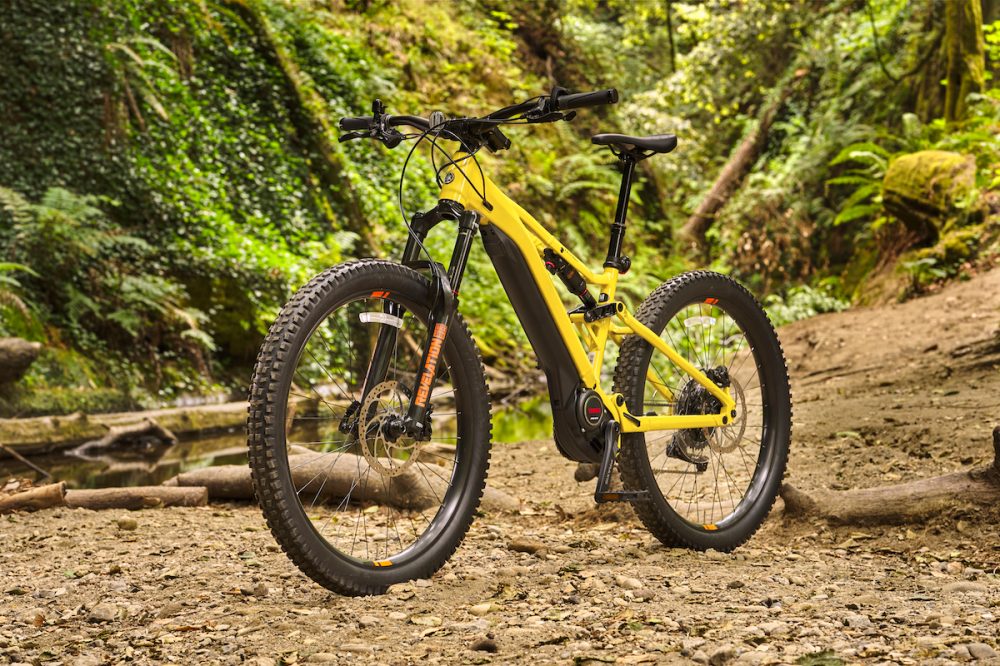
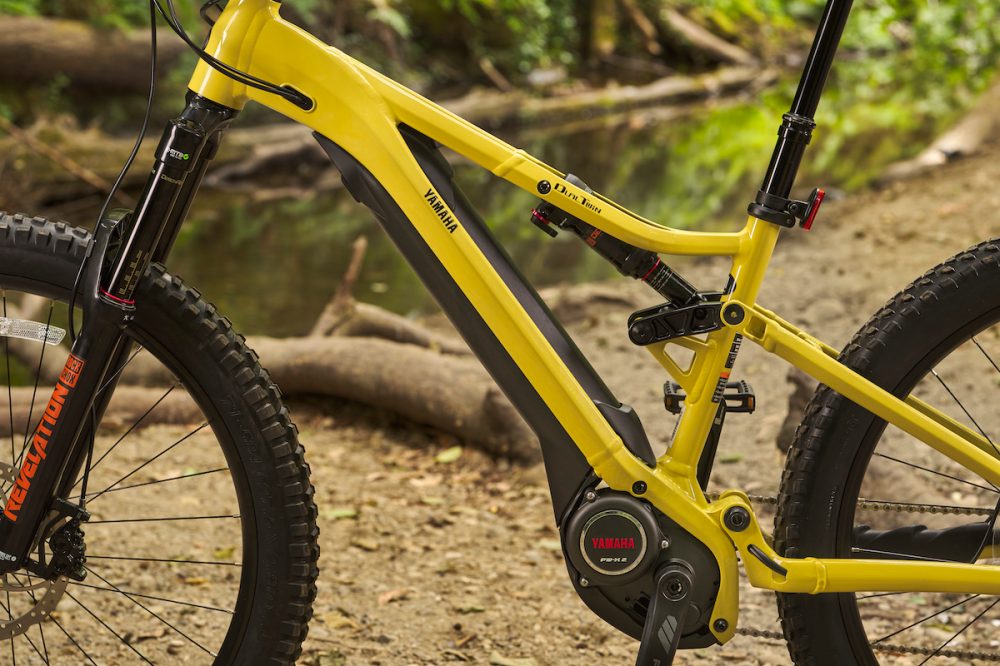
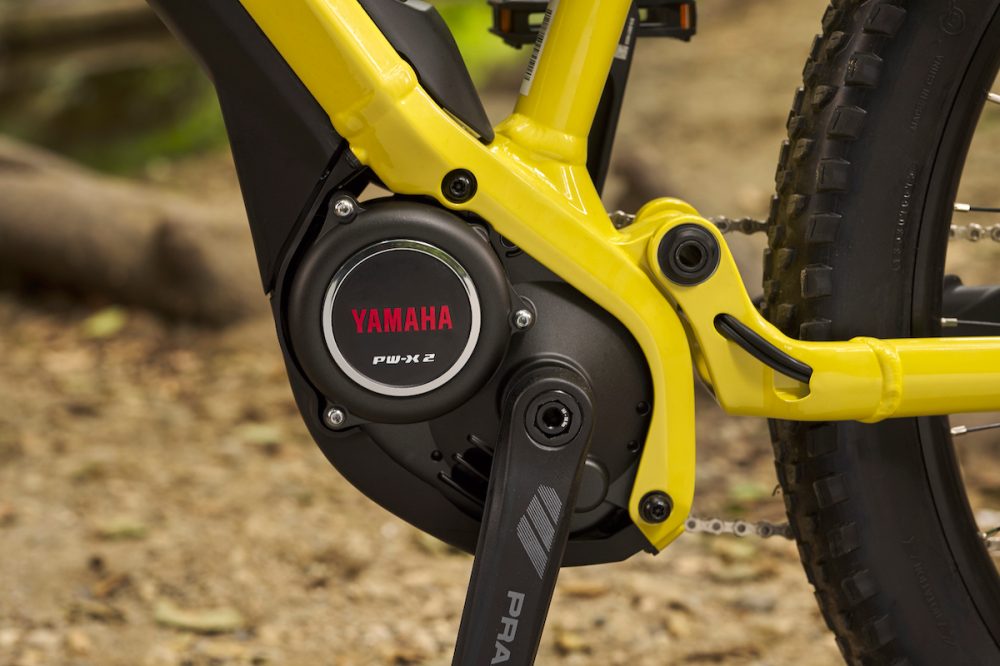
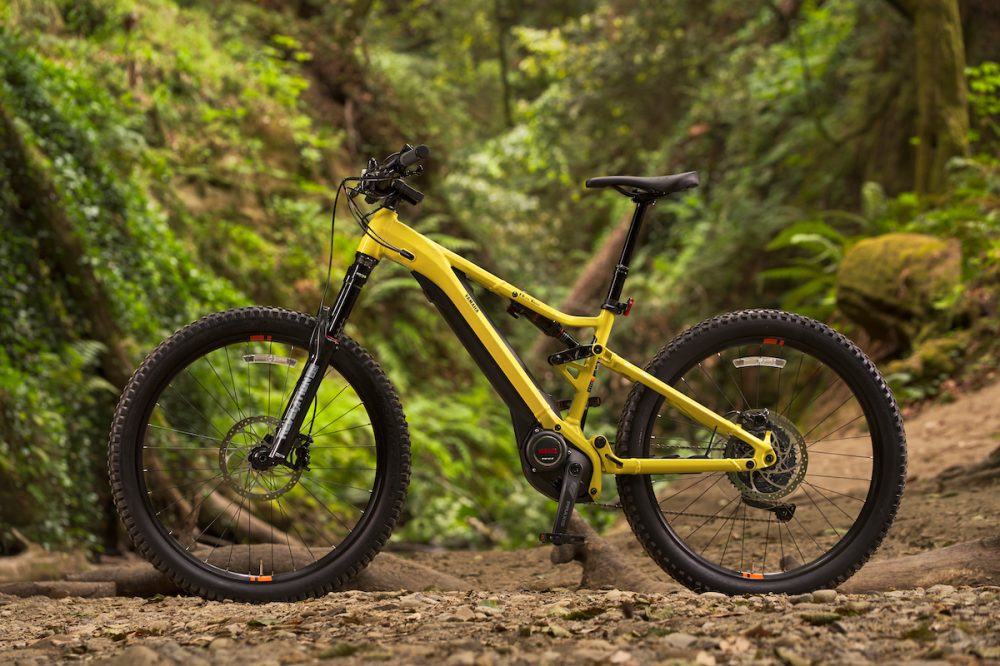
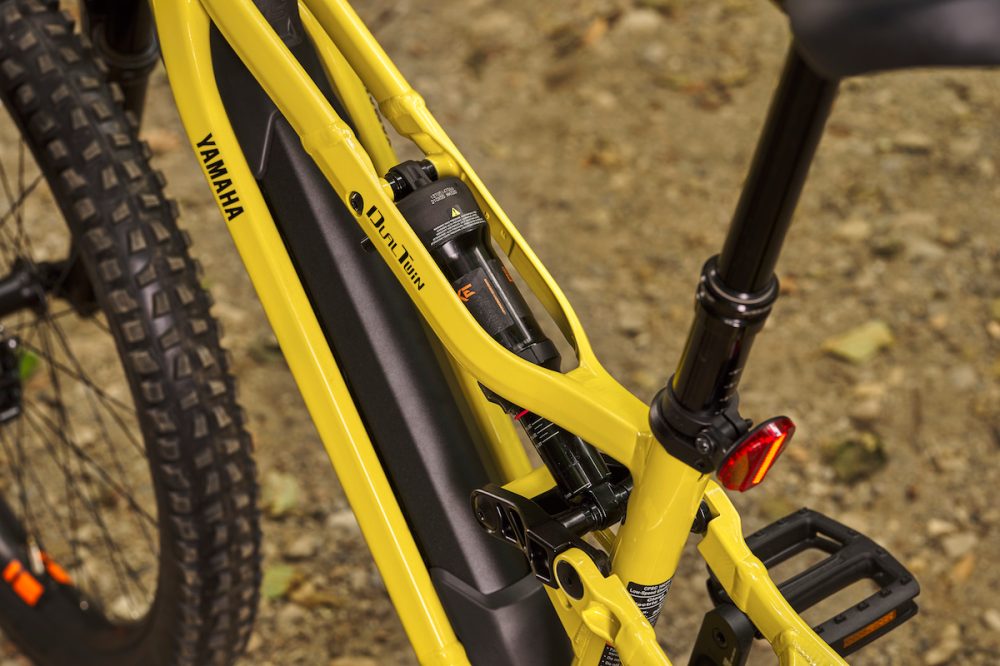
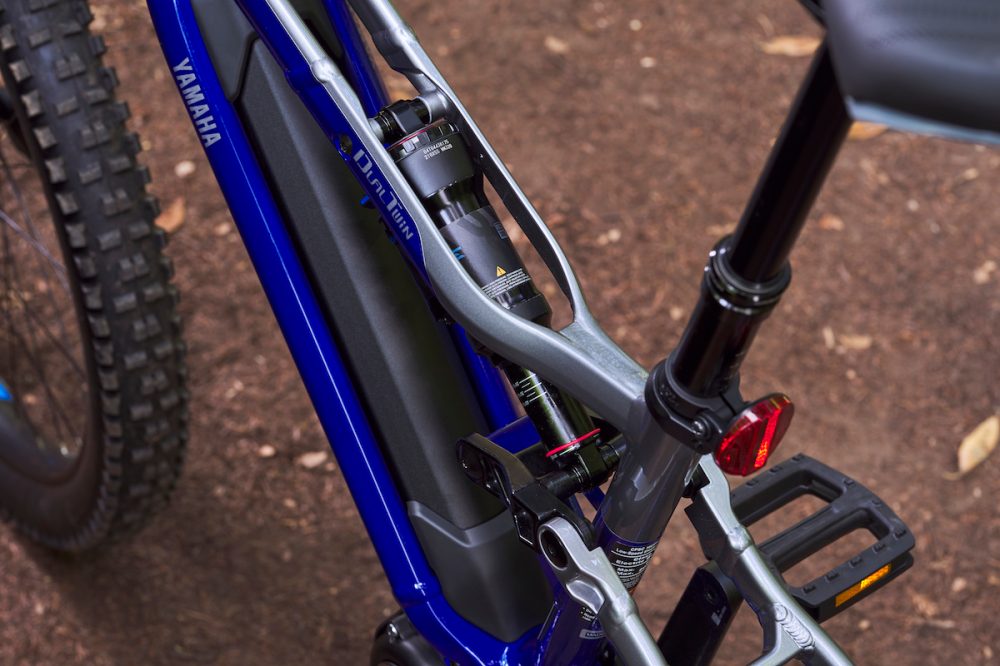
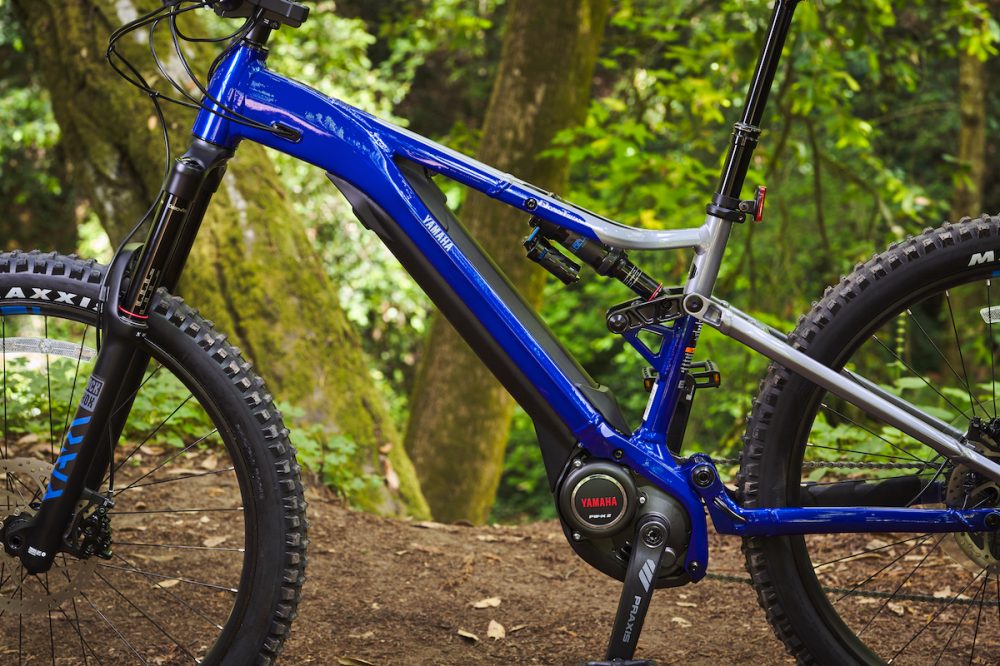
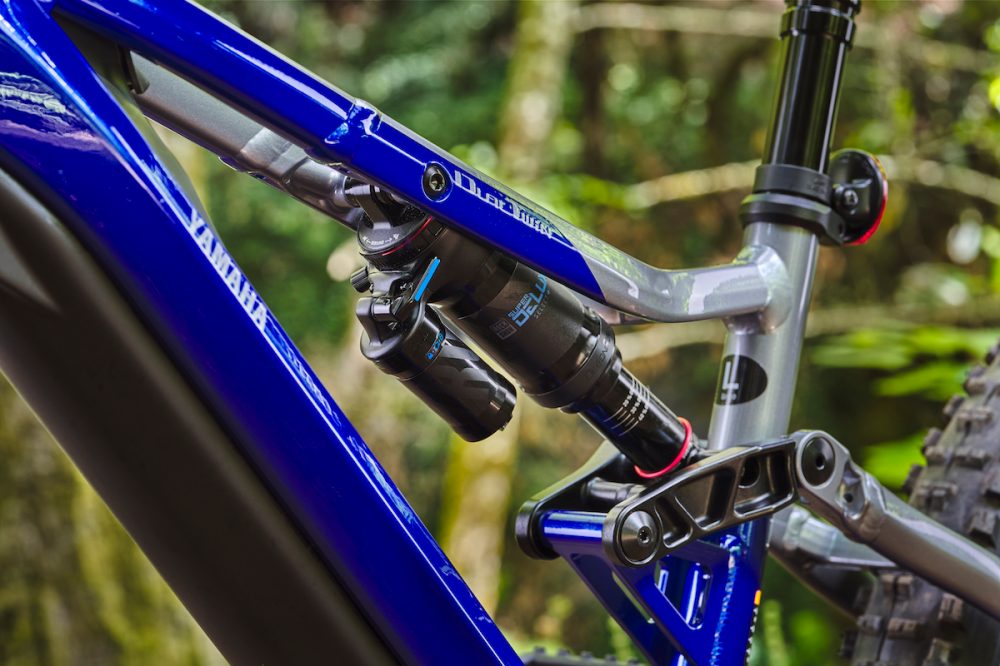
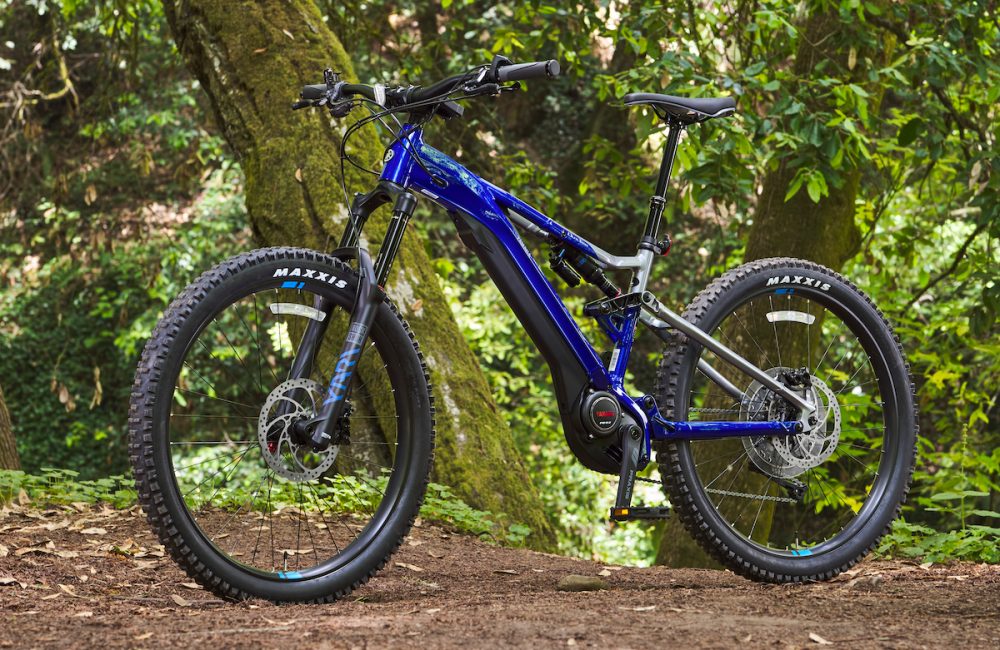





Comments